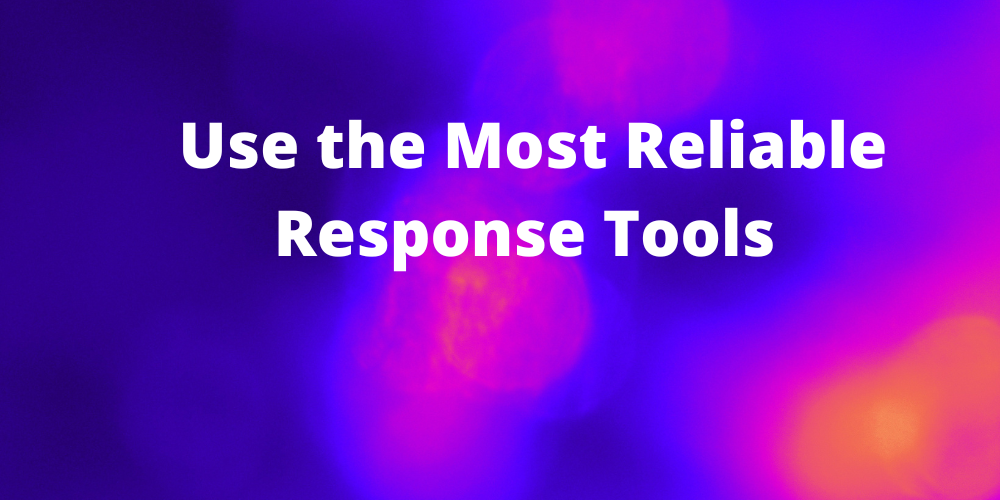Author Archives: teds
Author Archives: teds
Step 2: Turn Your Business Into a Brand with Graphic Design

The way you present your business will have a major effect on how people view your work and whether or not they want to sign up to your list. In order to draw in a crowd who views you as a top leader, you will need the right visuals and aesthetics for your brand.
When potential customers are browsing on Amazon, Etsy or other shopping sites (including digital courses), they will often make a quick decision based on the visuals presented to them.
When someone browses through the many options available to them in their search, they are likely to select a product that has the most professional branding. It’s important to invest in the visuals for your brand, especially your site and lead magnet graphics, since they are some of the biggest lead generators available to you.Your brand should have its own logo, color palette, and overall aesthetic. You can create your own graphics with tools like Canva and Photoshop. If you don’t feel as though your work will suffice, you can hire a freelance graphic designer to help you complete your vision.
You can find freelancers like this on Upwork, where all you have to do is create a job listing and analyze the bids that come in. If you’re on a budget, you can turn to Fiverr for a more cost-effective graphics gig.

Step-By-Step Lead Generating Process
As an online entrepreneur, one of the most effective ongoing tasks you’ll undertake that will contribute to your income growth is lead generation. Getting subscribers on your list allows you to communicate with them for months and years as they look to you for guidance and recommendations.
Generating leads for any niche generally requires the same steps. Each one will provide you with new opportunities to grow your audience and business to its fullest potential. Below, you’ll find a 30-step plan for lead generation that can help you build a substantial list of niche followers.
Step 1: Use the Most Reliable Response Tools

Communication is one of the most valuable assets you can have for your brand. This makes any response system just as valuable, since it would control a large portion of your brand’s communications.
If you end up with an autoresponder system that fails you, such as getting caught in spam filters or even not being functional after a short period of time, you could stand to lose a whole list of potential customers due to a malfunction.
Make sure when you are searching for a company to work with that you look for experience over cheap prices or marketing buzz during a launch. It will be worth ignoring the hype when you don’t have to stress over unforeseen complications.
Make sure the company you choose allows for you to have more than one list, so that you can separate (segment) certain people and use strategic methods to reach a wider audience with a targeted message.


The power of choice is one of the most powerful tools people have in their lives. It is one of the most important ideas in business too. It can be used to make decisions, offer people a variety of options, and motivate people.
Choice encourages people to buy your product, shows that you care about your customers and their preferences, or it can be used as a way to make them feel like they are in control. In other words, the power of choice can help you reach your goals, improve your relationships, and make better decisions.
Here’s how to leverage the power of choice in business.
To Increase Customer Engagement and Satisfaction
If a customer has choices, they are more likely to be engaged with your business and satisfied with their purchase. The Journal of Consumer Research (JCR) published a study that found that the more choices people have, the more likely they are to purchase. This phenomenon has been observed from online shopping to grocery store shelves.
To Reach Your Goals
The power of choice allows the individual to make choices that they are confident in and helps them achieve their goals. Choices enable people to work towards their goals more efficiently and effectively. They also help people feel better about themselves and their future.
To Improve Your Networks
Networking is all about finding connections that will help you in your business. The more choices you have, the more likely you are to find a connection that can help you in your business.
To Make Better Decisions
The power of choice significantly impacts business, leading to increased decision-making skills and better customer satisfaction. And to help customers make more informed decisions, businesses add new choices as they offer more products.
For example, a business may offer different coffee beans to please the most discerning consumer. The customer could choose the coffee they prefer based on many factors, such as what it tastes like, the type of bean, or where it was grown and harvested.
As you can see, the power of choice in business is a crucial tool to use that helps you reach your goals and grow more effectively. Without the power of choice, you may go down a path that doesn't outline your target audience. Furthermore, it provides the tools your customers need to feel heard and valued.

A successful business owner is confident, knowledgeable, and works hard to achieve their goals. Additionally, to be successful you need to have a clear vision for your company and know what you want it to do.
Successful people in business understand how to engage customers, market their products, negotiate strict terms and lead a team of workers. They also know how to raise capital and work with investors. A business owner must be able to communicate clearly while making decisions that solve problems for their company and its employees.
To become a more successful business owner, follow these six tips.
Know Your Industry Well
Understanding the industry in which one operates is vital for success in any field, especially when it comes to business ownership. The more knowledgeable you can be about your industry, the better you will be at your job.
Be Clear on Your Goals and Objectives
To achieve success, you need to have clear goals set out before you that will help guide you through your journey as an entrepreneur. Having goals and objectives may seem obvious, but you may be surprised to learn that many people do not take the time to lay these out for themselves – and sadly, it can be detrimental to their success
Be More Flexible
Be open to adapting your business model or strategy to succeed. This will require a lot of flexibility and persistence, but the rewards can be massive if you find the right solution. Of course, you must first identify what works in your market and then modify your business model as needed.
Monitor Your Analytics
Keeping track of your numbers or analytics is vital to making the right decisions for your business. For example, if a marketing plan doesn’t gain the conversions you need, you know you need to adjust it or make a completely new one. However, it is also important not to obsess with your numbers. There is a healthy balance between monitoring to making good business decisions versus obsessing because you are unsure about your plans.
Engage and Involve Your Customers or Target Audience
Knowing your target audience is only the start. You also need to engage, interact, and involve them as much as possible once you establish them. This is the key to sustainable loyalty.
Network with Other Business Owners
Networking is essential to establish yourself within the industry further. Customers or your audience want to know they can trust you first. Networking with the right people also helps you create more valuable content through collaboration with others.
Following these tips will ensure you do what is required to become a successful business owner. Successful business owners understand their target audience and are fully engaged. In addition, they are flexible as they realize change is inevitable; they commit to lifelong learning of their industry, and they are aware of their business numbers at any given time.

It is not easy to change your mindset, but you can make anything happen with a positive attitude. In other words, having the right mindset allows you to achieve anything you want because you are no longer allowing things or negativity to cloud it.
In contrast, a negative attitude is contagious to those around you. It eats away at your happiness and your will to live or do the things you need to be successful.
Here are five steps to changing your attitude for the better.
Step One: Identify the Problem
First, ask yourself why you are feeling defeatist. What is causing you to have a poor attitude? Is it your environment? The work you are doing or the people you are around? Whatever it may be, there is likely something you can do to solve it once you identify it.
Step Two: Think about What You Can Do to Solve the Problem
Now that you know the problem, find ways to solve it. For example, if you know those around you are causing your poor attitude, take a break and leave the room.
Step Three: Reverse or Stop Your Thoughts
Take a moment to recognize the thoughts you are having. If they are negative, identify what aspects of them are true. They are likely far from the truth or not relevant to your situation. Once you recognize the facts, flip the thought to the opposite.
For example, let’s say you think you are a burden to others. First, take the time to figure out why you believe this and then tell yourself, "I am not a burden because..." This technique can be used for just about any negative thoughts you have.
Step Four: Change Your Environment
It is not always possible to change your perspective on life. However, it is possible to change your perspective on people and things by changing your environment. You can do this in many ways too. Start with small changes such as switching up the type of music you listen to or the television shows. These small changes can lead to much bigger changes in your perspective on life and the world.
Step Five: Be Grateful and Take Action Towards What Matters Most to You
The last and most crucial step is to be grateful for the good things in life and take action towards them. Getting caught up in the negative is easy but it's essential to focus on the good. This means that you should not just sit around waiting for something to happen. Instead, go out there and make it happen.
Be sure to follow these five steps now if you want to change your attitude. A positive attitude is needed to achieve your goals and live a life full of purpose and understanding. You have the power to change as long as you want it and do the work to get there.

People who suffer from social anxiety tend to feel uncomfortable, tense, or nervous whenever they find themselves in a social spot and they feel disturbed that they may be judged by other people. If you've been suffering from this kind of anxiety, you're not alone.
The truth of the matter is that there are certain points in our lives where we all have experienced this. I mean, don't we get nervous sometimes when we are around certain people? How about first dates and job interviews?
There are lots of moments of self-consciousness where we're likely to feel socially anxious and while this may seem normal, it becomes worrisome when it starts to hinder you from living your life to the fullest and starts occurring too intensely or frequently.
The fear of being judged negatively is what brings about social anxiety and people have their unique situations that tend to make them experience this kind of anxiety. While some people can experience this when they're hosting an event, speaking in front of a crowd, or in any similar situation, some may have this anxiety when they're performing or showcasing in front of other people or having an interaction.
For instance, you might feel socially anxious while you're giving a presentation because you're not so comfortable with conversing with strangers at parties, even though you're outgoing. This simply connotes that you can be outgoing and still experience social anxiety....
Read on by claiming your free copy of this brand new report!


Do you know that your tone of voice, posture, gestures, and facial expressions are powerful communication tools? Well, now you know they are. Body language speaks loudest, although these nonverbal cues utter no words. It's the key to achieving success in professional and personal relationships and it could also take your social life to the next level. The bone of contention is that you'll be able to build better work and home relationships when you know how to use your body language to express positivity, which explains why you must learn to understand what body language is, its significance, and how to make it work for you.
Body language can be explained to be the way we instinctively communicate nonverbally with the usage of certain mannerisms, gestures, and physical behavior. There are wordless signals you're likely to give and receive consistently when you're interacting with others, and while you may be aware of this, you may also not be aware. You will be sending a very strong message with your eye contact, tone of voice, posture, and gestures, which all form your nonverbal behaviors.
The intricacies of these cues of nonverbal communication, which is also called body language, is that they can be very active both when you're speaking and when you aren't and they can either undermine, confuse, and offend others or make you more appealing, help to build trust, and promote ease. There are even times when your words and your body language may be contrasting. For instance, if you say you're happy and you have a frown on your face, the person you're speaking to will get the message that you're not honest, and the tricky thing about body language is that most people prefer to go for the interpretation of the body language rather than the words of the mouth.
Read on by claiming your free copy of this brand new report!


It can be a bit challenging to socialize if you're used to being quiet or more reserved. However, one thing you should know is that you're not alone if you find it difficult to go to a party where you don't know many people, engage in talks with co-workers, or have a conversation with a stranger. A lot of people have ended up in loneliness and got socially isolated because of their social anxiety or shyness. Nevertheless, the good thing is that you can learn to become a more fun person, enjoy the company of others, become more relaxed in social situations, and be more outgoing, with just a few tweaks without having to compromise who you are and perpetually stay on the conversational sidelines.
They say the journey of one thousand miles starts with a step. Hence, you must be ready to take a step if you truly mean business. So, how do you step up to establish contact with friends, colleagues, acquaintances, strangers, and other people around you? Here are a few tips that can help you out:


Despite how important listening is, a lot of us still find it difficult to invest the time and effort to become a better listener. Listening is a very valuable skill in the workplace and it has a huge impact on the growth of businesses and leadership. In this age, active listening is a challenge and an array of factors such as advancements in technology, social media, and ever-growing to-do lists tend to add to the perpetual distractions we face. As significant as listening is, the struggle to listen remains but there are a few steps you can follow and a couple of tips you can make use of to power your listening skills and improve both your home and work relationships
1.Listen to understand.
When it comes to active listening, this component cannot be shrugged off. You must not listen with a prejudged conclusion but with an open mind. Be intentional to understand. When you do this, you'll be able to ask questions that are well-timed and appropriate, instead of making several interruptions when the story is being told. When you listen and aim to understand, this means that you're going into the conversation genuinely and you'll be conscious of noting all the unspoken words such as nonverbal and verbal cues.
2. Use interruptions sparingly.
Many people are fond of this. Once someone is having a conversation with them, the only thing they've programmed in their mind is how to quickly “chip in” something, which is probably to disagree with what's said. Using interruptions sparingly is very vital when you're practicing active listening. Before you chip in your interpretation of what the speaker has said or come up with your questions, make sure you let the speaker finish his or her thought.
Oftentimes, we have an untamed eagerness to interrupt people because of the thoughts that have been sparked by their comments Little do we know that these interruptions tend to send a message like “I no longer have interest in what you're saying because you're taking too long” or “You don't know as much as I do.”...


If you want to succeed in your workplace, you need communication. And speaking of success, you as an employee as well as the company have a good chance of enjoying success when good communication ensues. If you're working with a team at your workplace, you'll need to communicate clearly and consistently so that you can get things done and achieve your goals because poor communication can make the team and the company suffer huge impacts.
The relationships you have with those you work with can be impacted by good communication. Working with your clients, bosses, and coworkers demands that you learn to communicate well, but when you don't have the skill, there's a probability that your chances of success will be blurred.
When you're in a leadership position at your workplace, you should know that your team expects you to give them clear information. With the clear information you give, you'll be carrying everyone along on the vision and no one would be left hanging. However, if you don't communicate well, you'll be left to captain a rudderless ship. Communication is immensely vital in three areas of our work....
